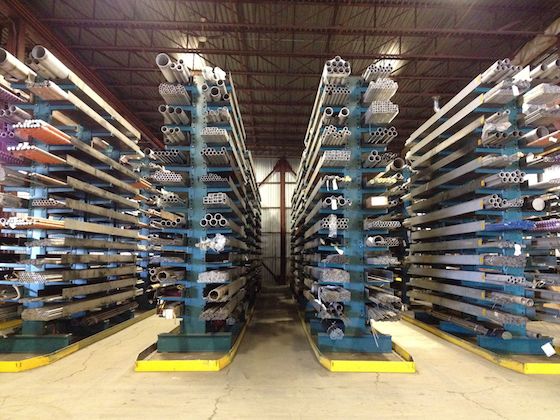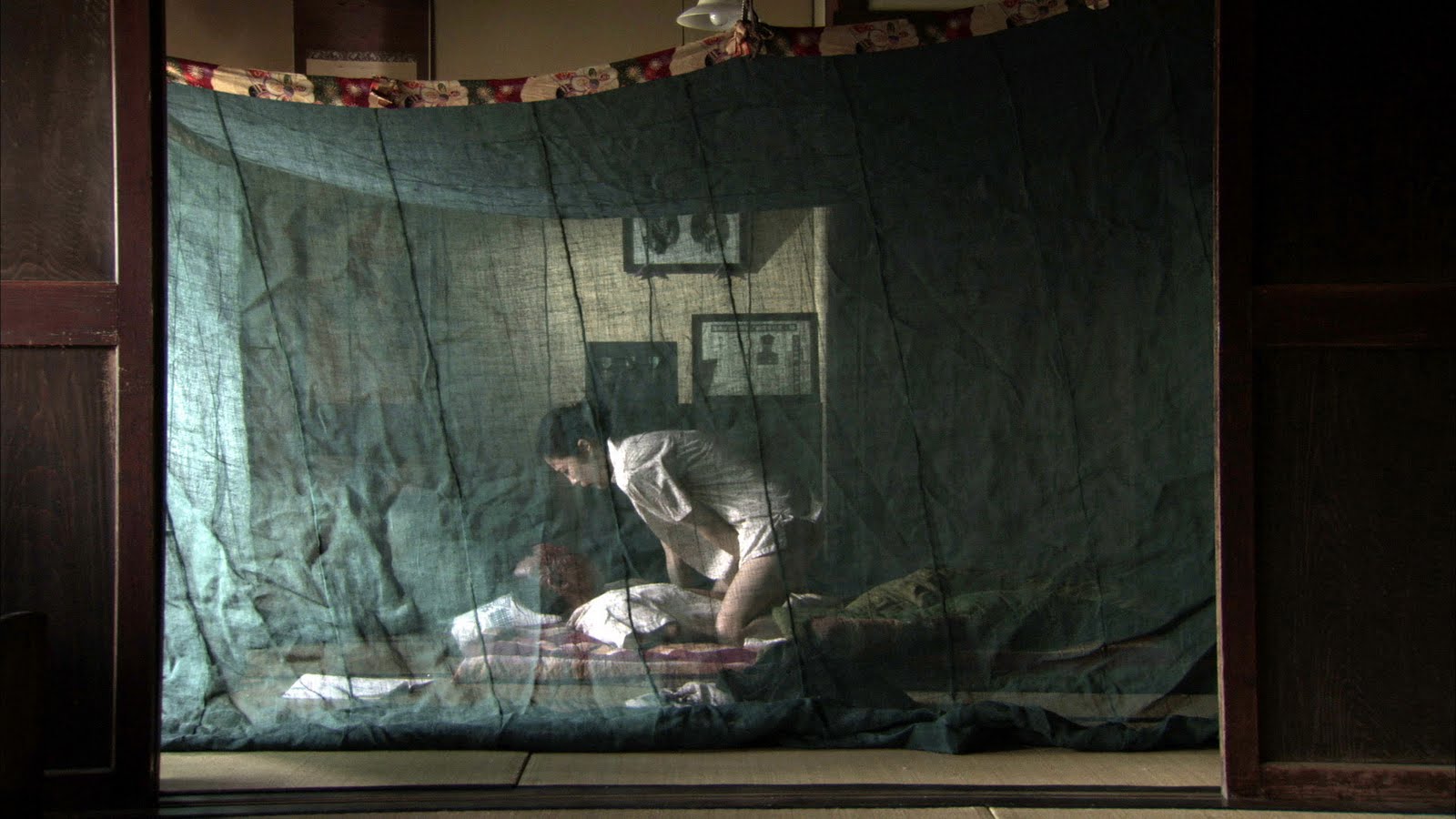 It’s hard to believe that Los Angeles has had its own film festival for only two decades, but this year is indeed the 20th edition of the LAFF, running from Wednesday, June 11, to Thursday 19. As ever, the program boasts a mixture of local and regional independent films, a couple of big-ticket studio films (Eastwood’s Jersey Boys is the closer, 22 Jump Street is a “pre-festival” special screening ), a couple of big-ticket independents (Bong Joon-Ho’s Snowpiercer is the official opener), a respectable International Showcase, and countless documentaries, shorts and music videos.
It’s hard to believe that Los Angeles has had its own film festival for only two decades, but this year is indeed the 20th edition of the LAFF, running from Wednesday, June 11, to Thursday 19. As ever, the program boasts a mixture of local and regional independent films, a couple of big-ticket studio films (Eastwood’s Jersey Boys is the closer, 22 Jump Street is a “pre-festival” special screening ), a couple of big-ticket independents (Bong Joon-Ho’s Snowpiercer is the official opener), a respectable International Showcase, and countless documentaries, shorts and music videos.
It’s hard to believe that Los Angeles has had its own film festival for only two decades, but this year is indeed the 20th edition of the LAFF, running from Wednesday, June 11, to Thursday 19. As ever, the program boasts a mixture of local and regional independent films, a couple of big-ticket studio films (Eastwood’s Jersey Boys is the closer, 22 Jump Street is a “pre-festival” special screening ), a couple of big-ticket independents (Bong Joon-Ho’s Snowpiercer is the official opener), a respectable International Showcase, and countless documentaries, shorts and music videos.
I must admit I usually bypass these last three categories (as well as the zoo scrum of the galas) in favor of lesser-known film-makers who’ve caught my eye in the past, or particular national cinemas (Argentinean independents are usually a good bet, and there’s generally some satisfying craziness from somewhere in Asia). This year I am most intrigued to catch up with Wakamatsu Koji’s penultimate film Caterpillar, which actually won the Silver Bear in Berlin back in 2010 but is being billed as a “film that got away” for its lack of visibility on these shores ever since. The official line on Wakamatsu has him spending the bulk of his career churning out popular pinku eiga softcore movies before the shock of 2008’s United Red Army, based on the true story of an unforgiving session of self-criticism amongst a radical leftist group, mixed with documentary material on the revolutionary movement of sixties Japan and a terrible final siege and showdown. It was indeed a shocking – and brilliant – film, but Wakamatsu’s righteous political outrage and yen for cinematic experimentation is bubbling under in even such salaciously-titled pink movies as Go Go Second Time Virgin (1969) and (especially) Ecstasy of the Angels (1972). In Caterpillar, he looks at the militaristic nationalism that fueled Japan’s Second World War effort through the relationship and readjustment of a mutilated veteran and his wife. Probably not a lot of fun, but almost certainly unmissable.

The other film-maker on my horizon this year is Quebec’s Denis Côté, whose A Joy of Man’s Desiring follows hot on the heels of the intriguing Vic + Flo Saw A Bear (2013), but eschews narrative for something more like his previous, Bestiaire (2012). In that film, Côté took a detached, deliberately non-interpretive observational approach to an off-season zoo in rural Quebec with mesmerizing results; here he turns his camera on a factory floor, its machines and its workers. Reports suggest a hint of semi-fictionalization, but what seems certain is that it will prompt allusive associations in the mind of the viewer and will doubtless by unlike any other film playing in the festival.

Amongst the smattering of other titles that caught my interest, there are indeed a couple of Argentineans: Natural Sciences, by debutant Matías Lucchesi, about a 12-year-old girl searching for her father in the harsh Sierras de Córdoba mountains; and Recommended by Enrique, from Rania Attieh and Daniel Garcia. In fact, this doesn’t have a great deal to do with Argentina beyond being a co-production – it is set in a slightly menacing Texas border town where an actress finds the horror movie she’s meant to be working on is not as expected, and falls in with a mysterious cowboy. The blurring of dreams and reality is promised.
Another sort of blurring should be at play in Kidnapping of Michel Houellebecq, by Guillaume Nicloux, in which the controversial and confrontational French author (“Atomised,” “Platform”) plays himself, in the not-necessarily-true story behind his disappearance for three days in 2011 during a publicity tour. Hard to know quite what to expect, and it will possibly be as infuriating as the man himself frequently manages to be, but my curiosity is piqued.
Other titles that have caught my eye include: Of Horses and Men (Benedikt Erlingsson) from Iceland, about the special bonds and parallels that form between man and horse in a mutually dependent existence in the Icelandic wilderness; Frank (Lenny Abrahamson), sort-of about bizarre British musical/cultural figure Frank Sidebottom, with Michael Fassbinder donning the large papier mâché head; Jimi: All Is By My Side directed by 12 Years A Slave scripter John Ridley and starring Outkast’s André Benjamin as Hendrix; The Great Museum (Johannes Holzhausen), a documentary behind the scenes of Vienna’s very great Kunsthistorisches Museum; and of course some Japanese craziness with Jossy’s (Fukuda Yuichi) about five reluctant young women recruited to save the planet from intergalactic supervillains.
And it’s not just new films – various celebratory screenings are taking place, including Ice Cube presenting Friday (F. Gary Gray, 1995), Buster Keaton’s wonderful Sherlock Jr (1924) playing for free in the California Plaza with live musical accompaniment, and a 30th anniversary screening of LA skid-punk movie par excellence, Alex Cox’s stone classic Repo Man (1984).
But this is a mere scratching of the surface – running from June 11 to 19 there’s more than enough on offer to keep you busy. Visit the official website at lafilmfest.com for full listings, and ticketing and pass information.
Tom von Logue Newth, LAFF, Los Angeles Film Festival, 2014, The Los Angeles Film Festival, Independent Film, Foreign Film, Film Festival